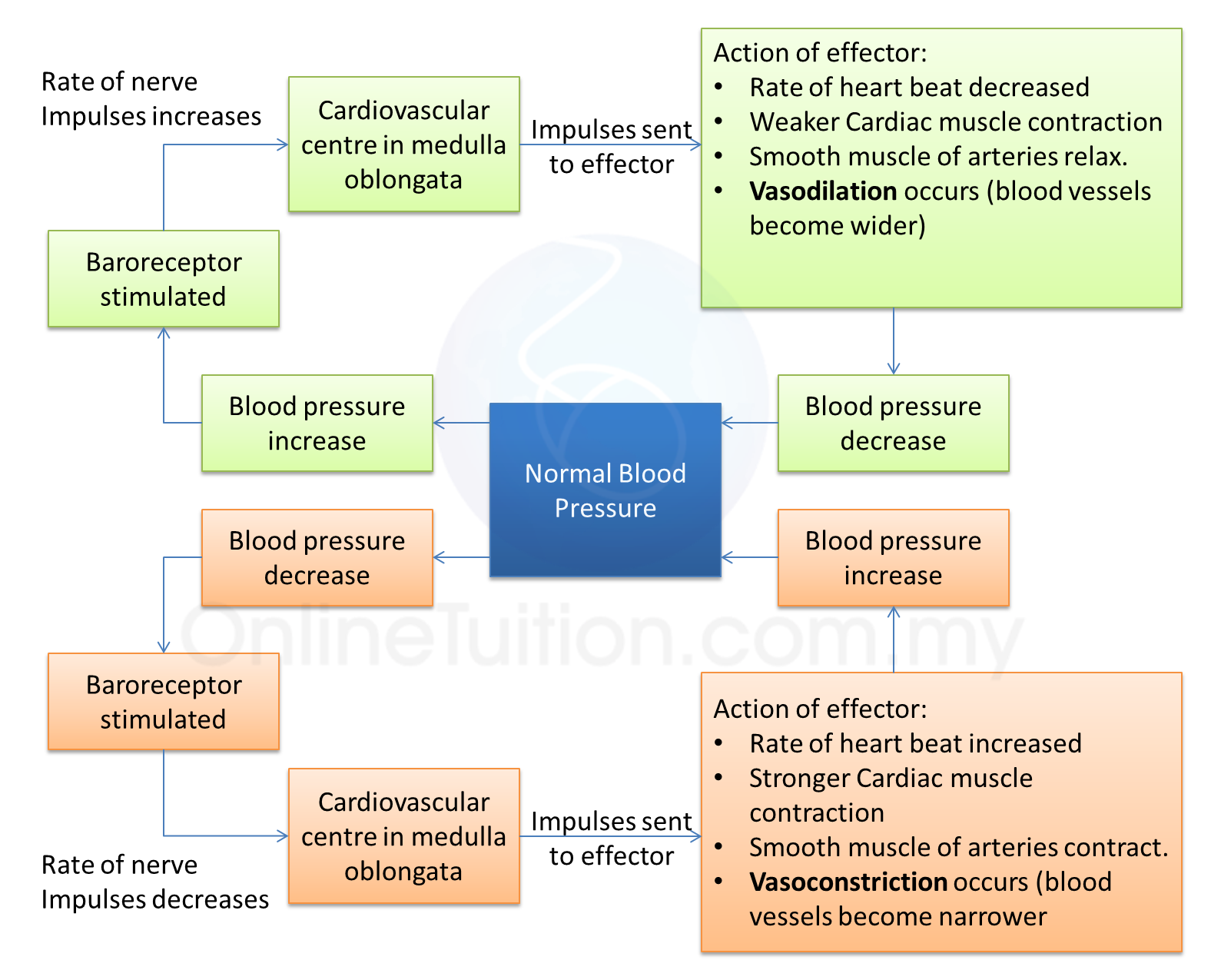Skip to content
Skip to main menu
- Pressure is how much force exerted on one unit area of a surface.
- Blood pressure is the pressure exerted by the blood on the walls of the blood vessels.
- Sometime, it is also called the arterial blood pressure as it is the pressure in the arteries.
Normal Blood Pressure
- When measuring blood pressure, we measure the
- systolic pressure (highest pressure measured in the aorta and the arteries during ventricular contraction)
- diastolic pressure (lowest pressure measured after the contraction of the heart while the chambers of the heart refill with blood.)
- For an adult, the normal systolic pressure is 120 mm Hg whereas the diastolic pressure is 80 mm Hg.
- However, blood pressure may varies throughout the day.
Factors Affecting Blood Pressure
- Blood pressure can be affected by the following factors:
- Rate of heart beat
Higher heart rate, higher blood pressure. - Volume of blood in the body
Bigger volume, higher blood pressure. - Rate and volume of blood flow
Higher rate and volume of blood flow, higher rate of heart pumping, higher blood pressure. - Resistance of blood vessels
Higher resistance (smaller blood vessels, rough blood vessel wall), higher blood pressure.
Regulation of Blood Pressure
